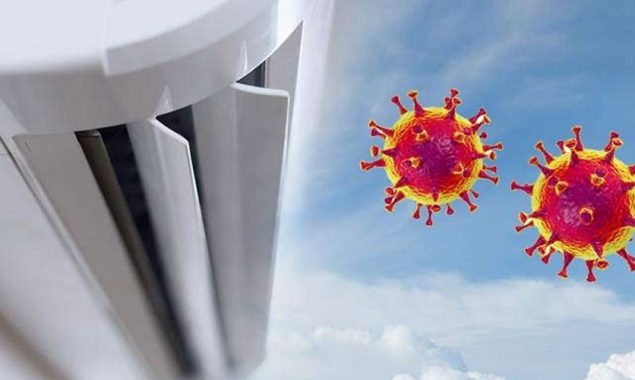
As the summer has started in Pakistan and weather is getting warmer each passing day, a question is circulating in people’s minds that whether the air conditioners (ACs) can play a role in spreading this new coronavirus, especially in places like office, restaurants or malls ?
Concerns have been raised about the results of a study published in April in the American Center for Disease Control and Prevention’s journal Emerging Infectious Diseases.
The study suggested that air conditioners played a role in transmitting coronavirus to up to 10 people at a restaurant in southern China.
According to the study, one of the 10 patients returned from Wuhan on January 23, the city where the virus first began to spread. The patient had lunch with three family members at the restaurant the next day, which did not have a window but an air conditioner on each floor. 2 other families were also present in the restaurant at one meter distance, for an average of one hour.
The first patient developed fever and cough symptoms on the same day and went to the hospital. In the next 2 weeks, 4 more members of his family, 4 members of the second family and 3 members of the third family tested positive for the new Coronavirus.
After a detailed investigation, the scientists discovered that the first patient in the restaurant was the cause of the virus in the second and third families. According to research, after examining the possible sources of transmission of the virus, is may be the viral particles. Further analysis revealed that the viral particles were spread through the ventilation of the air conditioner.
Manish Butte, an associate professor in the Department of Microbiology, Immunology and Molecular Genetics at the University of California, told the health magazine Health.com that air conditioners in public places such as offices, restaurants or cinemas could be a potential hazard. He attributed this to the way the AC works, as air conditioners dissipate air more quickly, which removes moisture and traps water vapor in heat.
He added that a room or place cools down when it loses moisture, but low humidity in the air causes evaporation and viral particles can remain in the air. Most of this tiny source is made up of water, but it also contains germs such as COVID-19,
A single sneeze expels about 3,000 particles. Coughing, sneezing or other particles also vary in volume and can travel different distances. Manish Butte added that, the air flow through the vents can carry particles to more distant people with the direction of air flow. AC cools the room during a hot day by recycling existing air.
If social distance exercises and other precautions are followed the particles stop spreading in the house. As far as AC systems in offices, shopping malls and restaurants are concerned, there is some risk, but the use of masks can reduce it, while social distance and hand hygiene must be practiced.
Also Read: Record reduction in greenhouse gas emissions during Coronavirus Pandemic
Read More News On
Catch all the Breaking News Event and Latest News Updates on The BOL News
Download The BOL News App to get the Daily News Update & Follow us on Google News.




